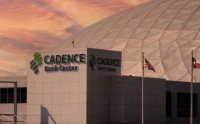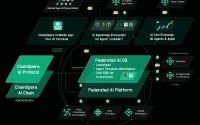I just walked out of Ari Aster’s Eddington, and I have to be honest with you—I’m still processing it. The lights came up, the credits rolled, and a strange silence hung in the theater, the kind of quiet that follows not a bad movie, but a deeply unsettling one. People are calling it a satirical neo-noir Western. They’re debating the plot, the performances, the nearly seven-minute standing ovation it received at Cannes that reportedly brought Joaquin Phoenix to tears.
But they’re missing the point. All of them.
Eddington isn’t a movie. It’s a simulation. A terrifyingly precise, meticulously crafted simulation of the societal operating system we’re all running in 2025. It’s a diagnostic tool for the soul of a nation atomized by algorithms, and when I first realized what I was watching, I honestly just sat back in my chair, speechless. This is the kind of art that reminds me why I got into technology in the first place: to understand the systems that shape us, and to hopefully, build better ones.
The Petri Dish of Paranoia
On the surface, the story seems straightforward enough. It’s set during the 2020 COVID lockdown in a tiny New Mexico town. A local sheriff (Phoenix) decides to run for mayor against a rival (Pedro Pascal), and things spiral into a vortex of American paranoia. But the genius of this film isn’t in the plot; it’s in the source code.
To prepare, Aster didn’t just read books. He did what any good systems engineer would do: he ran an experiment. He created burner Twitter accounts and deliberately plunged himself into the fractured, warring ecosystems of our online world. He let the algorithms feed him, radicalize him, and show him the distorted realities they curate for millions. This wasn't just research; it was a controlled descent into the digital madness that now defines our political landscape.
Think about that. It’s like a biologist creating a series of petri dishes to cultivate and study the most dangerous bacteria. He was mapping the feedback loops, the trigger phrases, the conspiracy theories from QAnon to whatever came next, not as an outsider looking in, but as a user experiencing the system’s logic firsthand. The result is a film that understands societal atomization—in other words, the way our technologies, for all their promises of connection, are actually pushing us into isolated, individual bubbles—on a terrifyingly intimate level.
The film’s setting during the COVID lockdown is no accident. It’s the perfect backdrop for this experiment, a moment when our physical communities dissolved and our digital tribes became our entire world. Eddington brilliantly portrays a town where neighbors no longer share a physical reality, but instead inhabit warring digital ones. Their paranoia isn’t just a personality quirk; it’s a feature, programmed and amplified by the information they consume. What does it even mean to be a "town" when every citizen is living in a different, algorithmically-generated universe?

A Diagnosis Is Not a Disease
This brings us to the reaction. The film is polarizing, to say the least. It’s sitting at a divided 69% from critics and 65% from audiences on Rotten Tomatoes. Some viewers have called it "mean-spirited," and I can understand why. The film holds up a mirror to the ugliest parts of our contemporary psyche, and the reflection is brutal.
But calling it "mean-spirited" is like calling a doctor's diagnosis "mean." A diagnosis isn't meant to be comforting; it's meant to be accurate. You can't begin to treat an illness until you have the courage to name it. And that’s what Eddington does. It names the disease. The way Aster maps the chaotic, non-linear logic of an online flame war onto the classic structure of a Western is just staggering—it means the gap between our deranged digital spaces and our fragile physical world is closing faster than we can even comprehend.
This is a modern-day witch trial, but instead of spectral evidence, the characters are armed with screenshots, memes, and data-mined "proof." It's a system designed to bypass critical thought and ignite pure, uncut emotion. Of course a film that exposes this is going to be divisive. It challenges the very foundation of our curated realities.
Aster himself has spoken about how aggregate scores on sites like Rotten Tomatoes are "disastrous for challenging films," and it's a beautifully meta observation. The very system of algorithmic aggregation he’s critiquing is the one being used to flatten the reception of his work into a simple "Fresh" or "Rotten" score. He’s fighting the machine from within the machine. ‘Eddington’ Director Ari Aster Looks Back On His Visionary Satire: “It’s About Where We Are” - Deadline
So when I see some people dismissing it while others, like one commenter I saw, are calling it a contender for Best Picture, I don't see a contradiction. I see the system working exactly as designed. The film is acting as a filter. It’s sorting the audience into those who are willing to undergo the diagnostic and those who would rather not know the results. But if we refuse to even look at the X-ray, how can we ever hope to heal?
Now, We Build the Antidote
Here’s the thing. It would be easy to walk away from Eddington feeling nothing but despair. To see it as a grim forecast of an inevitable, fractured future. But that’s not my takeaway. As a technologist, I see it as something else entirely: a blueprint of the problem.
A great engineer doesn't just admire a problem; they use the analysis to design a solution. This film is the most detailed, gut-wrenching bug report on our current social software I have ever seen. It shows us every vulnerability, every exploit, every line of corrupted code that’s leading to a system-wide crash.
This isn’t an ending. It’s a beginning. It’s a challenge issued to every one of us—to the engineers designing the platforms, to the artists telling the stories, and to the citizens navigating the information. The film shows us the simulation of our societal breakdown. Our job, starting right now, is to build the antidote. We need to design systems that reward nuance over outrage, foster genuine connection over tribalism, and rebuild the shared reality that our current technology is so efficiently tearing apart. Eddington has given us the diagnosis. The treatment plan is up to us.









